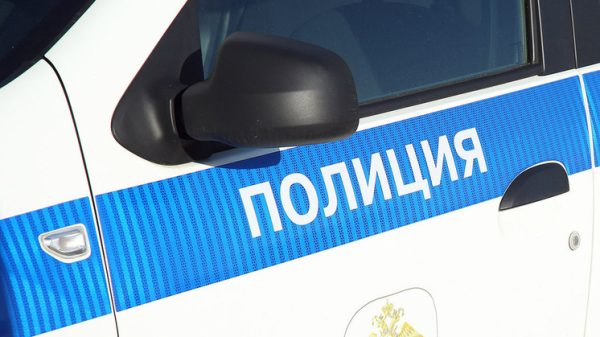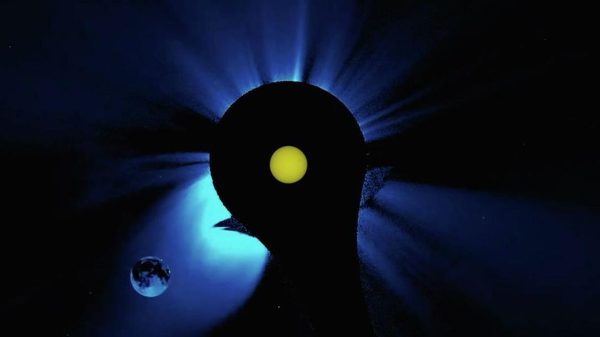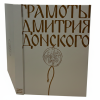
The French Open ended on Sunday in Paris . The sensation of the second Grand Slam tournament of the season was 17-year-old Russian Mirra Andreeva, who reached the semi-finals, and the winners in singles were the world number one from Poland, Iga Szwiatek, and the third number in the world classification, Spaniard Carlos Alcaraz.
Andreeva already made a splash at last year’s French Open: the then 16-year-old tennis player confidently qualified, beating compatriot Polina Kudermetova and two Colombians, then defeated the strong Alison Risk from the USA and Frenchwoman Diane Parry, giving each three games. And then in the third round she played an equal set with the American Cori Gauff, a tennis player from the world top ten, and even won it. But then, apparently anticipating possible success, she became worried and fell apart, winning only two games in subsequent games.
Mirra arrived at this year's Roland Garros not as a promising tennis player, but to some extent as justifying them. This, according to the President of the Russian Tennis Federation Shamil Tarpishchev, was the difficulty for the athlete herself: it’s one thing when you rise from the bottom of the world rankings and you have nothing to lose, and another thing when you’re already on the outskirts of the elite and you’re faced with the task of taking its own in fights with 50-60 classification numbers. “Another psychological subtext,” he stated in a commentary for.
And Andreeva fully mastered these nuances at the 2024 French Open. Moreover, she not only beat her opponents, whom she had to beat, but also created two real sensations. In the second round, the Russian woman defeated former world number one Victoria Azarenka from Belarus, and in the quarterfinals she defeated another representative of this country, Arina Sabalenka, who occupies second position in the world ranking.
What both matches had in common was that their outcome was decided in the third game, and this is always a test for the nervous system, which requires some experience in playing in such situations. Andreeva withstood it, which proved that she may still be a young, but already an accomplished player. “She no longer has the fear of losing. There is another step in development — studying her opponent, improving. A very good moment for growth,” Tarpishchev noted, summing up Mirra’s performance at Roland Garros.
In the semi-finals, the young Russian lost to Jasmine Paolini from Italy; in this match she clearly lacked psychological freshness. But the president of the Russian Tennis Federation still assessed her result with the phrase “above the roof.” The main thing is that thanks to this success, Andreeva broke into the four Russian tennis players who will be able to compete at the Olympic Games in Paris. True, it is not worth demanding that she repeat the achievements of Roland Garros, as Tarpishchev noted. “Now, to achieve progress, she must play without pressure for her own pleasure,” he emphasized.
The other three Russian tennis players who have qualified for the Olympics are Daria Kasatkina, Lyudmila Samsonova and Ekaterina Alexandrova. True, at the French Open they all did not play very well. Alexandrova was eliminated in the first round, Kasatkina in the second, Samsonova in the third. Of the other Russian girls, we can note Anastasia Potapova, who reached the fourth round, losing there to the world's first racket and future tournament winner Szwiatek, and Elina Avanesyan, who reached the same stage and lost there to the future finalist Paolini.
Speaking about Olympic prospects, one cannot fail to note the performance in doubles of the highly experienced Russian Vera Zvonareva, who teamed up with Mirra Andreeva at Roland Garros. The duet of one of the oldest and one of the youngest participants in the tournament reached the quarterfinals. There, the Russians withdrew for tactical reasons: Andreeva needed to focus on performing alone. But Zvonareva qualified for the Olympics in doubles — and it is possible that she will perform there again together with her young partner.
People of no rain In the men's singles at the French Open, the main event of the first days was perhaps the farewell performance of its 14-time champion Rafael Nadal. The 37-year-old Spaniard was extremely unlucky with the draw: he immediately fell on the fourth racket of the world, Alexander Zverev, and could not do anything with his opponent in the first round match. Although, for example, Russian Daniil Medvedev, who sparred with Nadal before the start of the tournament, said that he was well prepared.
In his closing remarks, Nadal, perhaps recalling the saying “never say never,” left fans hoping to see him again in Paris. “I don’t know if this is the last time I stand in front of you,” the Spaniard admitted, addressing the stands. “But if this is the last time, then I enjoy it.” However, even if we are not talking about returning to the French Open, Nadal will most likely come to Roland Garros to play at the Olympics. According to sources familiar with the situation, it is very likely that he will team up with compatriot Carlos Alcaraz.
As for Russian tennis players, the main hopes were placed on Medvedev and Andrei Rublev. Despite the fact that clay can hardly be called the favorite surface of one or the other, both won major victories on clay courts. So, Medvedev won last year at the Masters in Rome, and Rublev has in his collection titles of champion of prestigious tournaments in Monte Carlo and Madrid, and he won in the capital of Spain this year.
Nevertheless, the result of both left much to be desired. Medvedev reached the fourth round, where he lost to Australian Alex de Minaur, and Rublev lost to Italian Matteo Arnaldi in the third round. According to the president of the Russian Tennis Federation, one of the reasons for this could be the difficult weather: it rained in Paris throughout the first week of the tournament. “Moisture makes the court loose, very slow, but usually it is hard there, with a higher ball bounce. Therefore, there are enough unexpected options for the result,” — this is how Tarpishchev assessed the prospects of Medvedev and Rublev when they were still in the tournament bracket, and, unfortunately , turned out to be right.
However, both, according to Shamil Anvyarovich, will have the opportunity to rehabilitate themselves at the Olympics. “Yes, we play worse on clay, but this does not mean that we will not fight,” he emphasized. “It will also be easier to play due to the fact that at the Olympic Games there is a limit on the number of players per country.”
In addition to Medvedev and Rublev, Russians Karen Khachanov and Roman Safiullin qualified for the Olympics in the men's singles. Both played unsuccessfully at Roland Garros: Khachanov lost to Slovakian Josef Kovalik in the second round, and Safiullin dropped out in the first round, losing to Serbian Dusan Lajovic. The fifth Russian participant in Roland Garros among men, Pavel Kotov, managed to complete two rounds, defeating, among other things, the former champion of the tournament, Swiss Stanislas Wawrinka, but could not cope with the second racket of the world, Italian Jannik Sinner.

The final match featured Alcaraz, who had previously stopped Sinner, and Zverev, who did not have to play the world's number one Novak Djokovic because the Serb withdrew in the quarterfinals due to injury. But even without the participation of the Grand Slam tournament record holder, the final was bright. The Spanish-German confrontation lasted all five sets, during which Alcaraz even had to take a medical time-out — the Spaniard was bothered by cramps. But in the end, he was able to overcome the difficulties and win.

Alcaraz won Roland Garros for the first time in his career and justified his title as the heir to the «king of clay» Nadal. This is Alcaraz's third Grand Slam title. He previously added to his trophy case with victories at Wimbledon (2023) and the US Open (2022). Olympic champion Zverev remains without a major win.
The third Grand Slam tournament of the current season will be held in Wimbledon, a suburb of London, from July 1-14.























































Свежие комментарии